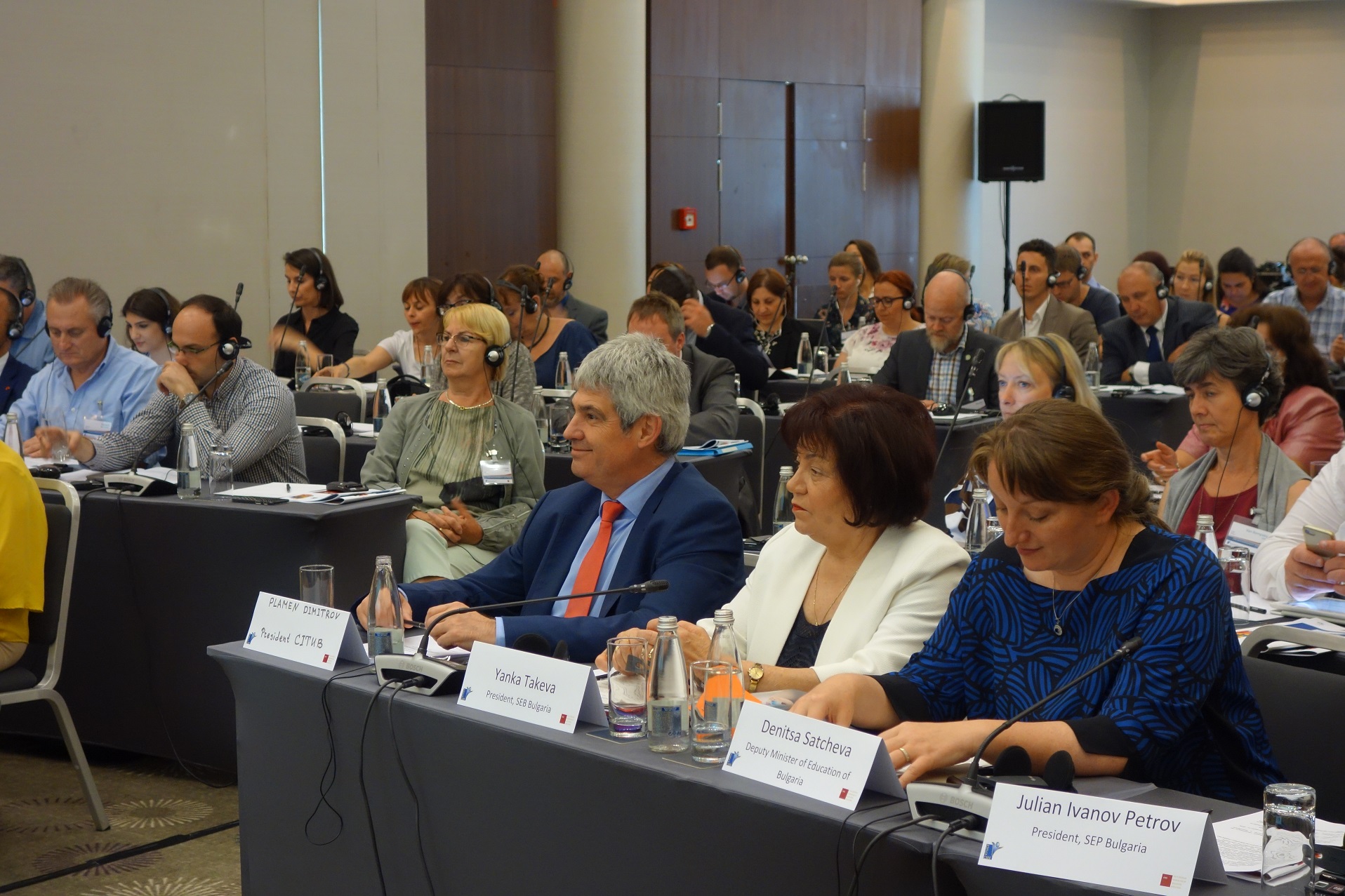European and national social partners gather in Sofia to discuss capacity building needs for joint education policy building
Published:
Social dialogue promotion has been defined as a continuous task in the last work programs of the European education social partners. On 13 and 14 June 2018, the final conference of European Sectoral Social Partners in Education striving for sustainable influence on European education policy building through successful social dialogue, capacity building project III took place in Sofia. It wrapped up five years of national and European social dialogue capacity building activities which have brought the European and national social partners around a table in eighteen European countries and two EU-candidate countries. The conference gathered over 80 education trade union and employer representatives from all EU/EFTA and candidate countries, who were to apply their newly acquired knowledge and come to grips with the essentials of their work which is joint education policy building. The social partners discussed the state of the social dialogue in their countries and how to strengthen the links between the national and the European Sectoral Social Dialogue in Education (ESSDE).
Through expert presentation from the European Commission, Eurofound, the European Education Council and the Bulgarian government, and the project expert, ICT, the conference shed light on the growing convergence between European policy coordination and national education policy. Initiatives such as the European Pillar of Social Rights, and its implementation through the European Semester, the recent proposal for a European Education Area 2025 and the state of industrial relations in Europe were discussed with the aim of supporting education social partners to set a solid basis for the continuation of the dialogue process. Within participatory workshops, education social partners exchanged on how to jointly tackle challenges related to occupational health and safety, support to teachers, trainers and school leaders and equity and equality in education.
Concluding the two-day work, participants agreed on the growing need to jointly address the challenge of the attractiveness of the teaching profession, based on education investment, the prevention and reduction of work-related stress, violence and hazards, as well as job insecurity and professional support. Across almost all EU/EFTA and candidate-countries, teachers’ shortage is becoming a worrying reality, resulting from a decade of investment shortages, deteriorating working conditions including precarious contracts and low status in society.
Against this background, Ms Denitsa Sacheva, Deputy Minister of Education and Science of Bulgaria stated “we should all recognize and appreciate the fact that a truly inclusive and innovative European Union society can be built through appropriate targeted and systematic investment in education and culture. And we must work for a EU where young people receive the best education and training and can study and find a job across the continent”. Recalling that trust, respect and mutual recognition are the basis for a successful social dialogue that fosters quality education for students and children, Susan Flocken, ETUCE European Director, thanked participants for all their contributions which “keeps us, ETUCE and EFEE up-to-date on the matters and concerns of teachers and school leaders. It helps the European social dialogue make a real impact in the classroom.”